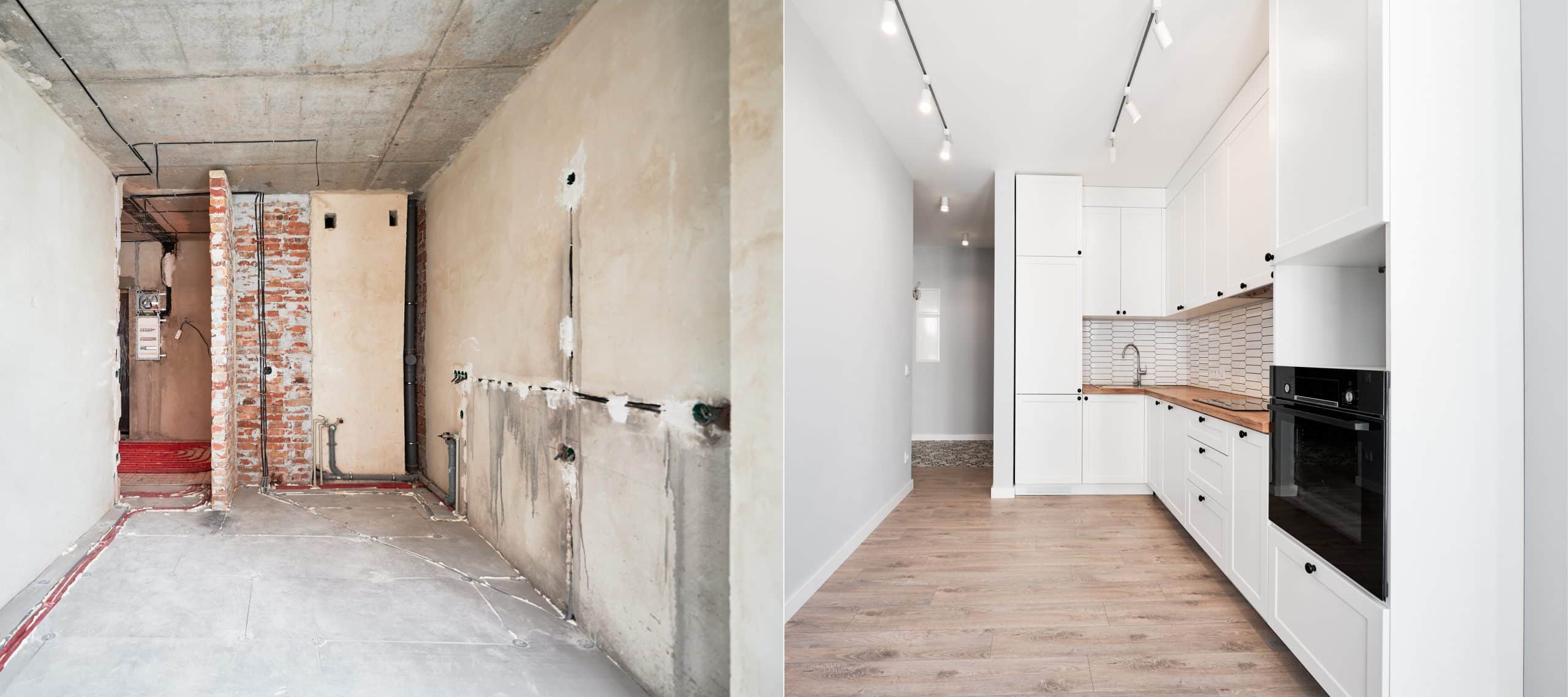In the current age of environmental consciousness, more individuals are seeking to reduce their carbon footprint. Not only does this protect the planet, but it can also lower energy costs and improve your quality of life. One such area where you can make a significant impact is your home, and more specifically, through home renovation. When you build or renovate your home with eco-friendly designs and materials, you can create a sustainable living environment. In this article, we explore how to plan and execute an eco-friendly home renovation in the UK, focusing on aspects like heating, water, insulation, windows, and materials to use.
Knowing your Energy Needs
Before embarking on your eco-friendly home renovation project, it’s essential to understand your current energy consumption. This will help you identify the areas in your home that need attention and make your renovation project more targeted and efficient.
En parallèle : What Role Do Microplastics Play in UK’s Freshwater Ecosystems?
To start with, conduct an energy audit of your home. This involves assessing your home’s energy use, from heating and cooling systems to appliances and lighting. You may hire a professional energy auditor or do it yourself using online resources and tools. The audit will help you understand where your home is losing energy, the efficiency of your heating and cooling systems, and how you can improve.
After the audit, identify the key areas that need energy-efficient upgrades. These could include outdated heating systems, poor insulation, inefficient water systems, and single-glazed windows. Keep in mind that the objective is to lower your energy use while maintaining or improving comfort in your home.
Lire également : How to Design Inclusive Playgrounds for Children of All Abilities in the UK?
Choosing Eco-Friendly Materials
Choosing eco-friendly materials for your home renovation is a crucial step towards achieving a sustainable home. These materials not only reduce the environmental impact of your project but also contribute to a healthier and more comfortable living environment.
When selecting materials for your renovation, consider factors such as their sustainability, energy efficiency, and the manufacturing process. For example, you might opt for recycled materials, which require less energy and resources to produce. Or you may choose materials with high insulation properties, such as cellulose, wool, or polystyrene, to reduce heat loss and lower your heating costs.
Windows also play a significant role in energy efficiency. Double-glazed or triple-glazed windows with low-emissivity (Low-E) glass can significantly reduce heat loss and improve your home’s thermal performance.
Additionally, consider the use of sustainable wood for your construction needs. Sustainable wood is harvested from responsibly managed forests, which helps to preserve biodiversity, protect wildlife habitats, and reduce carbon emissions.
Incorporating Energy Efficient Design
The design of your home can greatly contribute to its energy efficiency. With the right design, you will be able to make the most of natural resources like sunlight and wind, thereby decreasing your dependence on artificial energy sources.
Consider passive solar design, which utilises the sun’s energy for heating and cooling your home. This involves orienting your home to maximise sunlight exposure, installing large windows on the south-facing side of your house, and using materials that can absorb and store heat. Similarly, natural ventilation design uses wind and buoyancy to cool your home, reducing the need for air conditioning.
Also, think about incorporating energy-efficient appliances and systems in your design. These include Energy Star-rated appliances, LED lighting, high-efficiency heating systems, and water-saving fixtures.
Water and Heat Conservation
Water and heat conservation is another critical aspect of eco-friendly home renovation. By reducing water and heat wastage, you can significantly lower your energy use and cost.
For water conservation, consider installing low-flow showerheads and faucets, dual-flush toilets, and water-efficient appliances. Rainwater harvesting systems and greywater recycling systems can help you utilise water more efficiently.
On the other hand, heat conservation can be achieved through effective insulation and airtightness. Insulation reduces heat loss through the walls, roof, and floors, while airtightness prevents draughts and heat leakage. Installing thermal or heavy curtains, draught excluders, and energy-efficient doors and windows can also enhance heat conservation.
Managing the Renovation Project
Managing a home renovation project can be a complex task. However, with proper planning, you can ensure that your project is executed smoothly and successfully.
Begin by setting a realistic budget for your renovation. Factor in the costs of materials, labour, and any professional services such as architects or energy auditors. Remember, while eco-friendly renovations might have a higher upfront cost, they offer long-term savings through lower energy bills.
Next, create a detailed plan of your renovation. This should include the specific upgrades you intend to make, the materials you plan to use, and the timeline for the project. You may need to hire professionals like architects or contractors who have experience in eco-friendly renovations.
Finally, ensure that you comply with all relevant regulations and permits. In the UK, certain types of renovations may require planning permission or compliance with building regulations. Therefore, check with your local council or a professional advisor to ensure that your renovation is legal and safe.
Utilising Renewable Energy Sources
Renewable energy is a significant aspect of eco-friendly home renovation. When utilised well, renewable energy sources can drastically reduce your dependence on traditional power sources, reducing your carbon footprint and utility bills.
Solar panels are an excellent way to harness the power of the sun and generate electricity for your home. In the UK, where sunlight is variable, solar panels can still provide a substantial amount of your energy needs. You may consider installing solar photovoltaic panels to power your appliances and lights, or solar thermal panels for heating water. Moreover, with the UK government’s Feed-in Tariff scheme, you can earn money back for the electricity you generate and use.
On the other hand, heat pumps are another renewable technology worth considering. Heat pumps extract heat from the ground or air outside and use it for heating or cooling your home and water. Although heat pumps require electricity to run, they are incredibly energy-efficient and can result in considerable energy savings in the long run.
Wind turbines are another renewable energy source to consider, especially for homes in windy areas. A small wind turbine can generate a significant amount of electricity, reducing your reliance on the grid.
Remember, before installing any renewable energy system, check if you need planning permission from your local council. Some systems, like roof-mounted solar panels, generally don’t require planning permission unless your home is in a conservation area or a listed building.
Smart and Eco-friendly Landscaping
The exterior of your house is just as important as the interior when planning an eco-friendly renovation. Smart and eco-friendly landscaping can help improve your home’s energy efficiency while adding charm and functionality to your outdoor space.
Consider planting trees and shrubs strategically around your property to provide shade and reduce the amount of heat entering your home during the summer. In the winter, these plants can act as windbreaks, reducing the chilling effect of winds on your home.
Using permeable paving materials for your driveways and walkways can help manage stormwater runoff, reducing the risk of flooding and minimizing the need for irrigation.
Additionally, consider creating a garden or green roof. These green spaces can provide excellent insulation, reducing heat loss in winter and heat gain in summer. They also contribute to biodiversity, improve air quality, and create a soothing and beautiful environment.
Finally, installing outdoor LED lighting can enhance the beauty and safety of your outdoor space while conserving energy. Opt for solar-powered lights for an even more eco-friendly option.
Conclusion
Undertaking an eco-friendly home renovation in the UK is a rewarding and worthwhile endeavour. Not only does it contribute to the preservation of the environment, but it also enhances your home’s comfort, lowers your energy costs, and increases your property’s value. By understanding your energy needs, choosing eco-friendly materials, incorporating energy-efficient design, conserving water and heat, managing your renovation project effectively, utilising renewable energy sources, and considering eco-friendly landscaping, you can create an eco home that is both sustainable and comfortable. Always remember, it’s important to check for any planning permission requirements before starting your project. Start planning your eco-friendly home renovation today and take a step towards a greener future.






